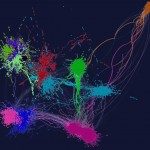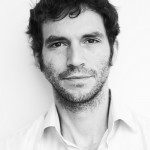Lien vers Pubmed [PMID] – 18773114
PLoS Genet. 2008;4(9):e1000175
The propensity of segmental duplications (SDs) to promote genomic instability is of increasing interest since their involvement in numerous human genomic diseases and cancers was revealed. However, the mechanism(s) responsible for their appearance remain mostly speculative. Here, we show that in budding yeast, replication accidents, which are most likely transformed into broken forks, play a causal role in the formation of SDs. The Pol32 subunit of the major replicative polymerase Poldelta is required for all SD formation, demonstrating that SDs result from untimely DNA synthesis rather than from unequal crossing-over. Although Pol32 is known to be required for classical (Rad52-dependant) break-induced replication, only half of the SDs can be attributed to this mechanism. The remaining SDs are generated through a Rad52-independent mechanism of template switching between microsatellites or microhomologous sequences. This new mechanism, named microhomology/microsatellite-induced replication (MMIR), differs from all known DNA double-strand break repair pathways, as MMIR-mediated duplications still occur in the combined absence of homologous recombination, microhomology-mediated, and nonhomologous end joining machineries. The interplay between these two replication-based pathways explains important features of higher eukaryotic genomes, such as the strong, but not strict, association between SDs and transposable elements, as well as the frequent formation of oncogenic fusion genes generating protein innovations at SD junctions.


